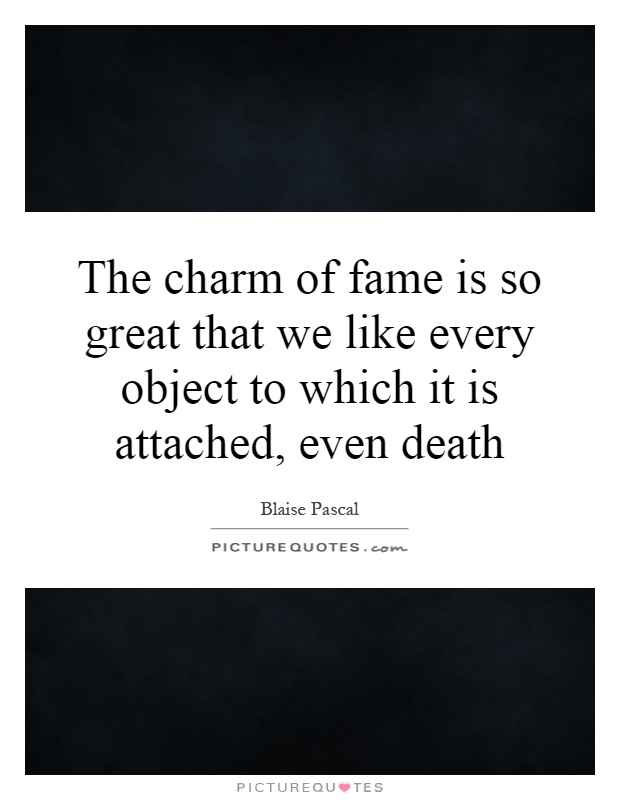The charm of fame is so great that we like every object to which it is attached, even death

The charm of fame is so great that we like every object to which it is attached, even death
Blaise Pascal, a French mathematician, physicist, inventor, writer, and Christian philosopher, is known for his profound insights into human nature and the complexities of life. One of his most famous quotes, "The charm of fame is so great that we like every object to which it is attached, even death," speaks to the allure and power of fame in society.Fame has always been a coveted and sought-after commodity, as it brings with it recognition, admiration, and a sense of importance. People are often willing to go to great lengths to achieve fame, whether it be through their talents, accomplishments, or even through scandal and controversy. The desire for fame is deeply ingrained in human nature, as it fulfills our need for validation, acceptance, and a sense of belonging.
Pascal's observation that we like every object to which fame is attached, even death, highlights the extent to which fame can influence our perceptions and attitudes towards things. When someone becomes famous, everything associated with them takes on a certain allure and appeal. People are drawn to celebrities, public figures, and historical figures because of their fame, and are often willing to overlook their flaws, mistakes, or even their mortality.
The idea that fame can make even death seem attractive is a powerful and thought-provoking concept. Death is a universal and inevitable part of life, yet it is often feared and avoided. However, when someone famous dies, their legacy and memory live on, immortalized in the public consciousness. Death becomes a symbol of their greatness, their impact, and their enduring influence on the world.












 Friendship Quotes
Friendship Quotes Love Quotes
Love Quotes Life Quotes
Life Quotes Funny Quotes
Funny Quotes Motivational Quotes
Motivational Quotes Inspirational Quotes
Inspirational Quotes